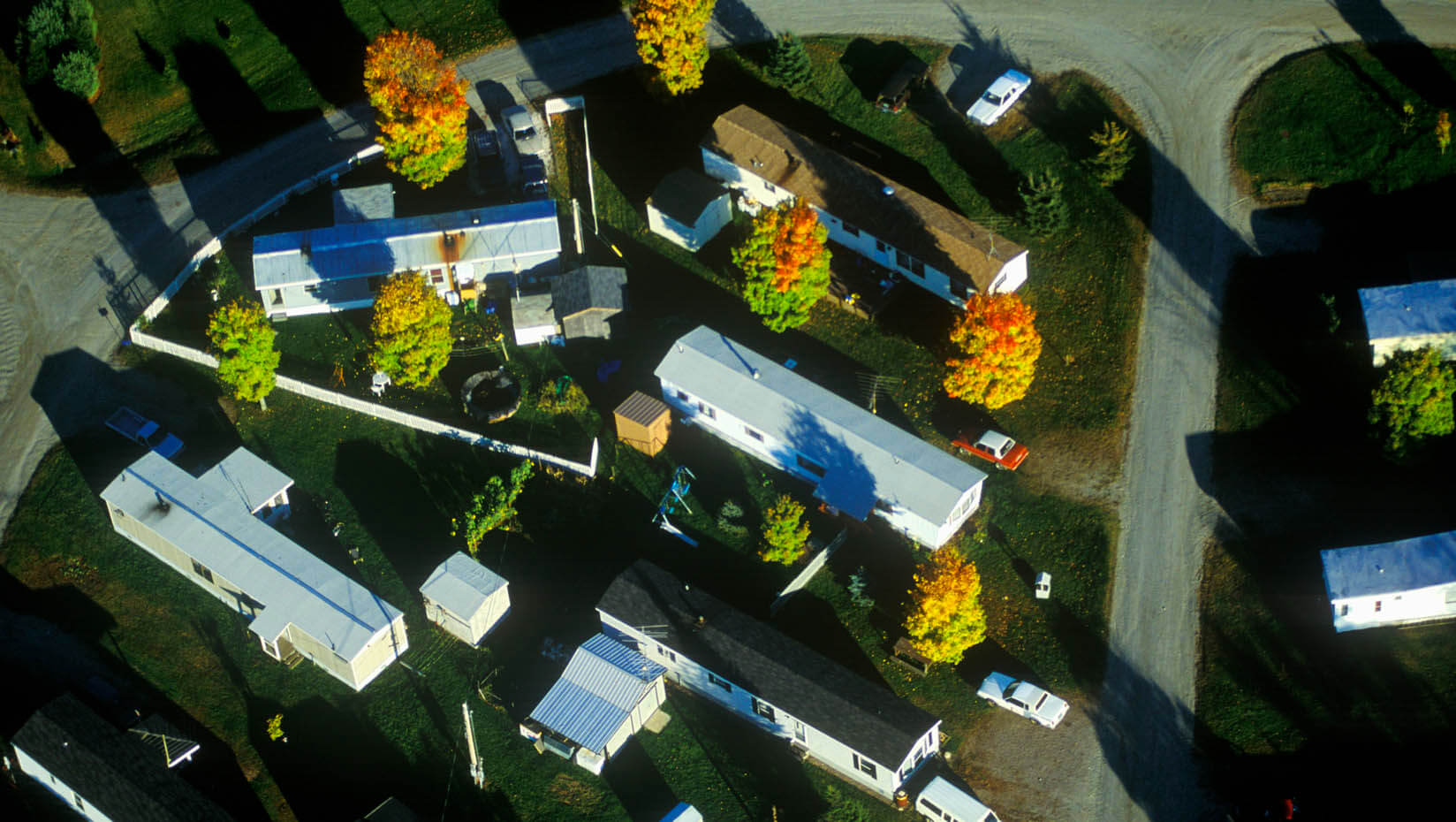
UMaine awarded $79K NOAA grant to study climate change resilience for mobile homes
The University of Maine will partner with regional institutions to study climate change resilience of mobile home parks in the Northeast, thanks to funding from the National Oceanic and Atmospheric Association (NOAA).
The NOAA Climate Adaptation Partnerships program, formerly the Regional Integrated Science and Assessments (RISA) program, awarded more than $79,000 to Sean Birkel, Maine state climatologist and assistant professor with a joint appointment in University of Maine Cooperative Extension and the UMaine Climate Change Institute, for a study of climate change resilience in mobile home park communities along with collaborators in New Hampshire and Vermont.
Mobile home park communities are commonly found in rural and ex-urban areas in the northern New England states of Maine, New Hampshire and Vermont. Mobile homes in parks are an affordable housing option at a time when there is a regional housing crisis.
However, these communities are especially vulnerable to climate-related extreme events. Most parks were developed before land use regulations were in place and are sited in low-cost, but often unsuitable and hazardous locations vulnerable to risks presented by climate change. For example, in Vermont, 6% of mobile home parks had land in floodways with more than 20% of parks at least partially located in FEMA-mapped floodplains, according to prior research from the University of Vermont. During Tropical Storm Irene, mobile homes accounted for 15% of homes damaged during the storm in Vermont, though mobile made up only 7% of the state’s housing stock.
“Mobile, or manufactured, homes are susceptible to damage from severe weather such as high winds and excessive rainfall, especially for structures that are not anchored,” says Birkel.
Birkel, along with colleagues at the Universities of New Hampshire and Vermont, will use the NOAA grant to develop a deeper understanding of how mobile home parks in Maine, New Hampshire and Vermont are being impacted by climate change. They will create a database of mobile home park communities in the three states — Vermont is the only of the three that currently maintains a mobile home park registry — and convene meetings with representatives of the mobile home park communities to determine climate change impacts in different ecoregions across the Northeast. The meetings will also build relationships that will support climate resilience efforts with mobile home park frontline communities.
“Mobile home communities are an important part of Vermont’s affordable housing landscape, yet, as Tropical Storm Irene demonstrated, they face greater risks from climate change,” says Kelly Hamshaw, co-principal investigator and senior lecturer in the Department of Community Development and Applied Economics at the University of Vermont. “This collaboration across northern New England will allow us to better understand the disproportionate risks posed by climate change, build partnerships across sectors and take a broader look at challenges and opportunities for supporting the resilience of these unique communities across the region.”
“Mobile home park management structures and practices vary from one community to the next and in many parks, residents may own their home but not the land,” says Mary Stampone, co-principal investigator and associate professor of geography at the University of New Hampshire. “These factors present a different set of challenges, unique to mobile home park communities, that must also be considered when assessing the risks posed by climate change.”
The researchers will also identify key external agencies and connect local and nonlocal stakeholders like state agencies and nonprofits that can reduce the vulnerabilities of the communities to climate change. Then, they will hold a final cross-state virtual meeting of all key stakeholders to discuss commonalities across each state and to develop an action roadmap for future collaboration and information sharing.
“By reaching out to vulnerable communities we can learn their climate adaptation and resiliency needs, and help connect people to needed resources. Ultimately, this project contributes to the important work of Maine’s Climate Action Plan,” says Birkel.
Contact: Sam Schipani, samantha.schipani@maine.edu
